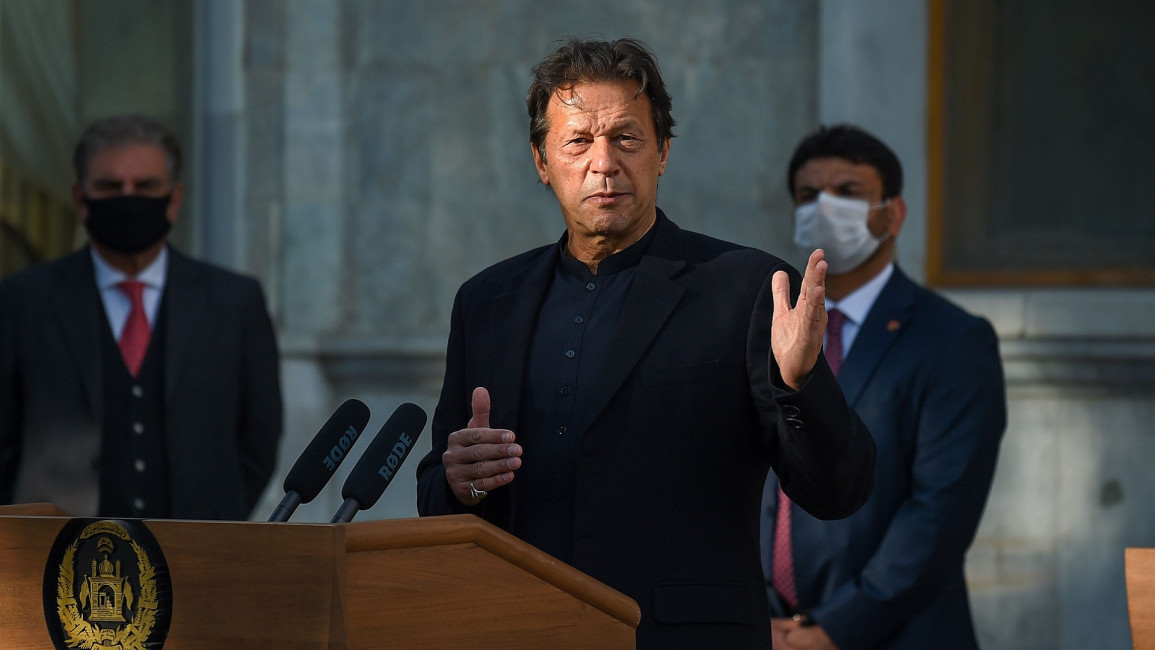Imran Khan's party hoping for majority in Pakistan senate elections
Pakistan's ruling party is seeking to consolidate influence on the parliament's upper house as indirect voting to elect 37 members of the country's senate begins on Wednesday.
Despite winning the 2018 general election, Prime Minister Imran Khan's Tehrik-e-Insaaf (PTI) party lacks a majority in the senate. This hinders the passage of key legislation, including reforms demanded by global financial institutions.
Khan's party holds 12 seats in the upper house, while the two main opposition parties – Pakistan Peoples Party and Pakistan Muslim League – have 12 and 25 seats respectively.
PTI wants to increase its seat count to 25. Aided by other coalition parties and independents, it is hoped this will give it a slender majority in the senate.
Senators are not elected through public vote in Pakistan. The country has an electoral college through which most candidates are elected by provincial assemblies, while those in Islamabad are voted in by members of the national assembly or the lower house of the parliament.
Twitter Post
|
Senate elections are held every three years on half of the chamber’s strength, with 52 out of 104 senators serving staggered six year terms.
Following the merger between Pakistan's Federally Administered Tribal Areas and Khyber Pakhtunkhwa, that figure is now 48. Eastern Punjab province has already elected 11 senators unopposed after a settlement between the ruling party and opposition.
The outcome of a vote by government legislators and allies in the lower house on making Khan's finance minister, Abdul Hafiz Sheikh, a senator is seen as a litmus test of the degree of confidence in the ruling administration.
Read also: Pakistan's Khan slams rumours of Israel normalisation as 'fake news'
"It could determine who has a majority in parliament…it will be an embarrassment for the government, and could even lead to seeking a fresh vote of confidence," Ahmed Bilal Mehboob, head of the independent research organisation PILDAT, said.
The lead up to the election has been marred by the government and the opposition accusing each other of seeking votes through unfair means.
Follow us on Facebook, Twitter and Instagram to stay connected



